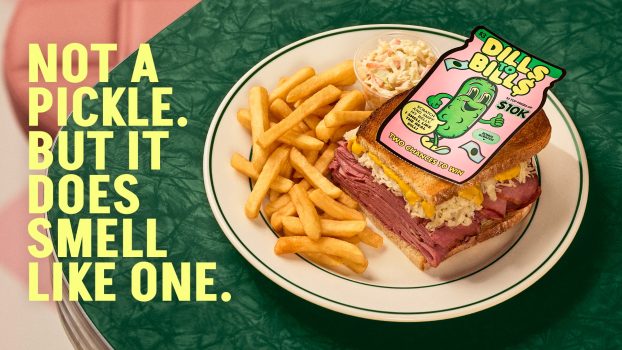In an effort to clean up in the dishwasher detergent category, international dishwasher products company Benckiser is launching a new product across North America one set to stand out against the boxes and pails of dishwashing detergent in the grocery aisle.
Electrasol Tabs are individually-wrapped solid rectangles of detergent sold in the same style of pop-top canister that carries popular potato chip Pringles. The canisters come with 19 tabs (equal to a 1.8-kilogram box) or 32 tabs (equal to a 3-kilogram box).
The tabs, available in Europe since 1991 (Benckiser is a German company with its Canadian headquarters in North York, Ont.), are being introduced across North America this month, with in-store displays and a direct mail program carrying samples of the two-toned bar.
A 30-second tv spot, still in production by Margeotes Fertitta + Partners in New York, is to be placed cross-country by Bates Canada for an October airing. A French version will run in the Quebec market.
‘We’re going to wake up the category,’ says Graham Robertson, Canada’s brand manager for Electrasol.
He says that convenience and product performance are the two elements that will most attract consumers to the product.
The canisters are easy to carry and store and the two-toned tablets offer a ‘technological advancement’ in automatic dishwashing detergent, according to the company’s packaging, which explains the role of the two colors: the blue layer ‘contains a special cleaning agent which naturally breaks down stubborn stains’ while the white layer ‘is super concentrated to remove tough food stains.’
And Robertson says grocery-store owners will appreciate the fact that the canisters are less bulky than boxes. In fact, in literature sent out to the trade, the company boasts that Electrasol Tabs will increase category profits by as much as 83%, since each canister takes up half the space of a box of detergent promising the same number of loads.
Robertson says the suggested retail price for the tabs will be about the same as for an equivalent box of detergent.
The question is: Will consumers like the new format?
Robertson points to the success of tablet detergents in Europe, where the concept has been steadily growing since its introduction six years ago.
In Germany, for example, the tablet share of the autodish category is 47% while in Belgium it is 29%, according to ACNielsen Worldwide figures provided by the company. Meanwhile, it is 10%, 12% and 18% of the overall category in Great Britain, Greece and Italy, respectively.
The same figures indicate that, of the tabs segment, Benckiser carries 41% of Germany’s market share and 60% of the Belgian market share, while in Great Britain, Greece and Italy, the company enjoys 82%, 97% and 92% respectively.
But anyone who’s watched more than one foreign film will know that the tastes and attitudes of Europeans are very different from those of many North Americans.
And that could be why both Lever and Procter & Gamble both tablet players in Europe have no plans as of yet to introduce their versions of the product to North America.
‘The consumer habits and the products people use in their machines are quite different (in Europe),’ says Mike Welling, vice-president of the home care category for Unilever Canada’s Lever Pond’s division, which makes All brand dishwasher products.
Welling says that Lever has done its research and d’esn’t think the product will work on this continent. Although he’s reluctant to reveal competitive information, he says that Europeans approach dishwashing differently than North Americans.
Welling also says that European dishwashers tend to have fault beds to soften the water (apparently useful for tablets), whereas North American dishwashers do not carry such a feature.
He points to the fact that other innovations that have proved successful in Europe have failed dismally here. For example, after a positive introduction in Europe, Welling says Lever briefly introduced dishwasher gels to North America a few years ago but pulled them because consumers were not interested.
‘The jury’s out,’ he says, adding that it will be interesting to see if Benckiser is successful with what he considers is merely a format presentation, rather than a new product.
Benckiser’s Robertson counters by saying that the new product is not just a change for the sake of change (which can often generate excitement in a category for a time) but a response to a consumer need.
‘I think we’ve been the category innovator of the ’90s,’ he says, adding that the company was the first to sell the large size pails (4.5 kilogram, 6.75 kilogram) so popular now with the bulk-happy consumer.
The pails didn’t impress the competition, however, which accuse Benckiser (which also makes value brand Calgonite) of starting a price war in North America. ‘It’s a category that Benckiser managed to position as a commodity category,’ says Lever’s Welling, adding that price wars change people’s perspective when it comes to value.
For the year ended June 21, dishwasher detergent sales grew nine per cent in Canada to $48.7 million, according to ACNielsen.























